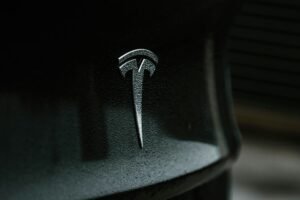Tesla Energy Engineering Internship Interview Questions

About Course
Tesla Energy Engineering Intern Interview Questions
This course is specifically designed for students and early-career candidates preparing for the Tesla Energy Engineering Internship interview, a hands-on, technically intense process focused on power systems, renewable energy integration, electrical validation, and system-level problem-solving. Whether you’re applying to work on Powerwall, Megapack, or energy software-hardware integration teams, this module offers 100 multiple-choice Tesla Energy Engineering Intern interview questions based on the real technical and system-level challenges tackled at Tesla.
Interns on the Energy Engineering team at Tesla are expected to contribute from day one—analyzing power conversion systems, validating PCB designs, working on thermal management, or building test setups for hardware-software interaction. The Tesla Energy Engineering Intern interview questions in this course prepare you to think critically, debug quickly, and design safely within fast-paced, sustainability-focused engineering workflows.
Course Overview
This course contains 100 multiple-choice Tesla Energy Engineering Intern interview questions, each with a detailed explanation to strengthen your understanding of both fundamental and applied concepts. Questions reflect Tesla’s engineering culture of speed, ownership, and real-world design awareness.
Each question is designed to test:
- Electrical and electronics fundamentals
-
Power systems design and safety
-
Energy storage system behavior
-
Validation techniques, measurement tools, and lab setups
-
Real-world reasoning, not just textbook theory
Topics Covered
The Tesla Energy Engineering Intern interview questions are structured across the core competencies required for interns contributing to Tesla Energy:
Electrical Circuit Fundamentals
-
Ohm’s law, power calculations, and circuit analysis
-
RC filtering, voltage dividers, and biasing for sensors
-
Troubleshooting voltage drops, resistive heating, and parasitic effects
Power Electronics and Conversion
-
Buck, boost, and buck-boost converter principles
-
Switching losses, thermal impacts, and inductor sizing
-
Rectifier behavior and understanding efficiency curves
Battery and Energy Storage Systems
-
Understanding SoC (state of charge), battery safety, and protection circuits
-
Designing for thermal runaway mitigation and fuse selection
-
Series/parallel battery pack behavior under dynamic load
Embedded Systems and Sensors
-
I2C/SPI bus issues, sensor interfacing, and analog-to-digital signal conditioning
-
Common firmware/hardware integration errors and how to debug them
-
Timing, signal noise, and debouncing in real-world sensor readings
System Validation and Measurement
-
Using oscilloscopes, multimeters, and thermal probes
-
Identifying and reducing noise in lab measurements
-
Planning a validation test for voltage ripple or power consumption
Energy Systems and Infrastructure
-
Grid interaction principles (islanding, synchronization, phase alignment)
-
Microgrid control, inverter interaction, and power flow direction
-
Grounding and isolation in residential vs utility-scale systems
Thermal and Mechanical Considerations
-
Evaluating thermal dissipation in power MOSFETs or regulators
-
Understanding airflow, heatsinks, and thermal interface materials
-
Placement decisions driven by mechanical integration with enclosures
Lab Safety and Best Practices
-
Lockout/tagout procedures, arc flash risk reduction, and PPE requirements
-
Current limits, fuse rating selection, and proper grounding techniques
-
Working safely with high-voltage DC systems in testing or validation setups
Why This Course Works
These Tesla Energy Engineering Intern interview questions are modeled after the practical, fast-moving environment interns face at Tesla. Each question emphasizes real-world trade-offs, critical thinking, and safety-aware design practices.
You’ll gain confidence in:
-
Applying theoretical knowledge to solve design and validation issues
-
Navigating measurement errors and test setups
-
Understanding how your work fits into large-scale clean energy solutions
Whether you’re analyzing an unexpected voltage dip, debugging a noisy sensor, or calculating power loss, these questions prepare you to do it the Tesla way—fast, focused, and accurate.
Who Should Use This Course
This course is ideal for:
-
Undergraduate and graduate engineering students applying to Tesla Internships
-
Early-career candidates interested in clean energy hardware roles
-
Electrical or mechanical engineering students wanting to bridge lab work with real systems
If you’re serious about contributing to Tesla’s mission from your first day on the job, these Tesla Energy Engineering Intern interview questions will help get you there.
Sample Questions You’ll Encounter
-
A buck converter shows high ripple at light load—what change would reduce it?
-
Your thermal probe shows inconsistent results—what setup factors should you evaluate?
-
A Powerwall battery pack exhibits voltage imbalance—what hardware elements might be causing it?
-
Your oscilloscope reads inconsistent I2C timing—what layout or termination issues might be involved?
-
A load test shows 10% unexpected power loss—what components should you inspect first?
Each of the 100 Tesla Energy Engineering Intern interview questions builds your ability to solve problems that actually show up in Tesla’s labs and systems.
Start Preparing Today
Master 100 multiple-choice Tesla Energy Engineering Intern interview questions and prepare to stand out in every interview and technical screen. Whether you’re joining the Powerwall, Megapack, or energy infrastructure teams, this course helps you speak the technical language Tesla expects—precise, grounded, and ready for action.
👉 Practice more Tesla Interview Questions →

Course Content
Tesla Internship, Power Electronics Electrical Engineer Interview Questions
-
Tesla Internship, Power Electronics Electrical Engineer Interview Questions – Easy
-
Tesla Internship, Power Electronics Electrical Engineer Interview Questions – Medium
-
Tesla Internship, Power Electronics Electrical Engineer Interview Questions – Difficult
-
Tesla Internship, Power Electronics Electrical Engineer Interview Questions – Behavioral/Culture Fit